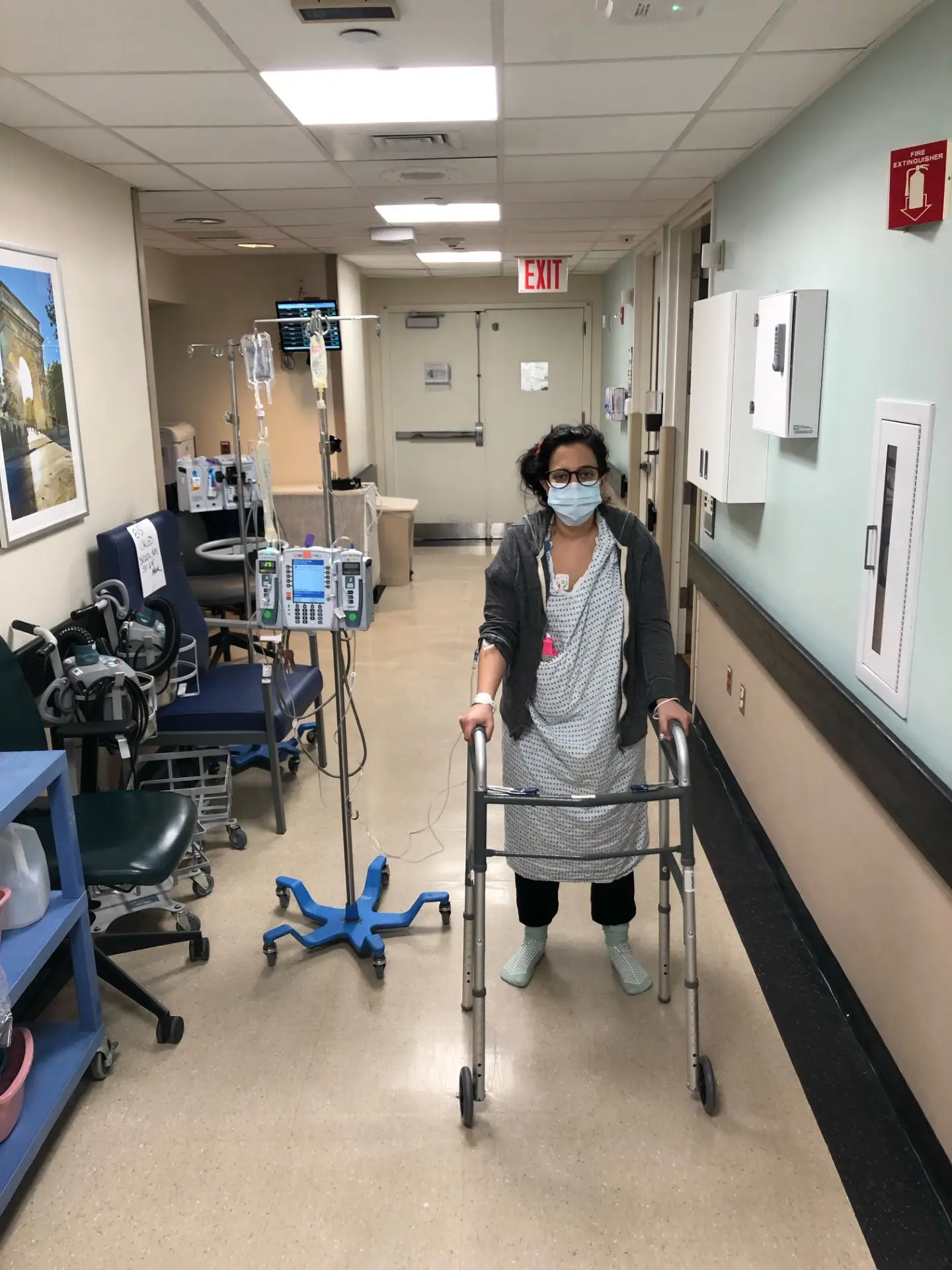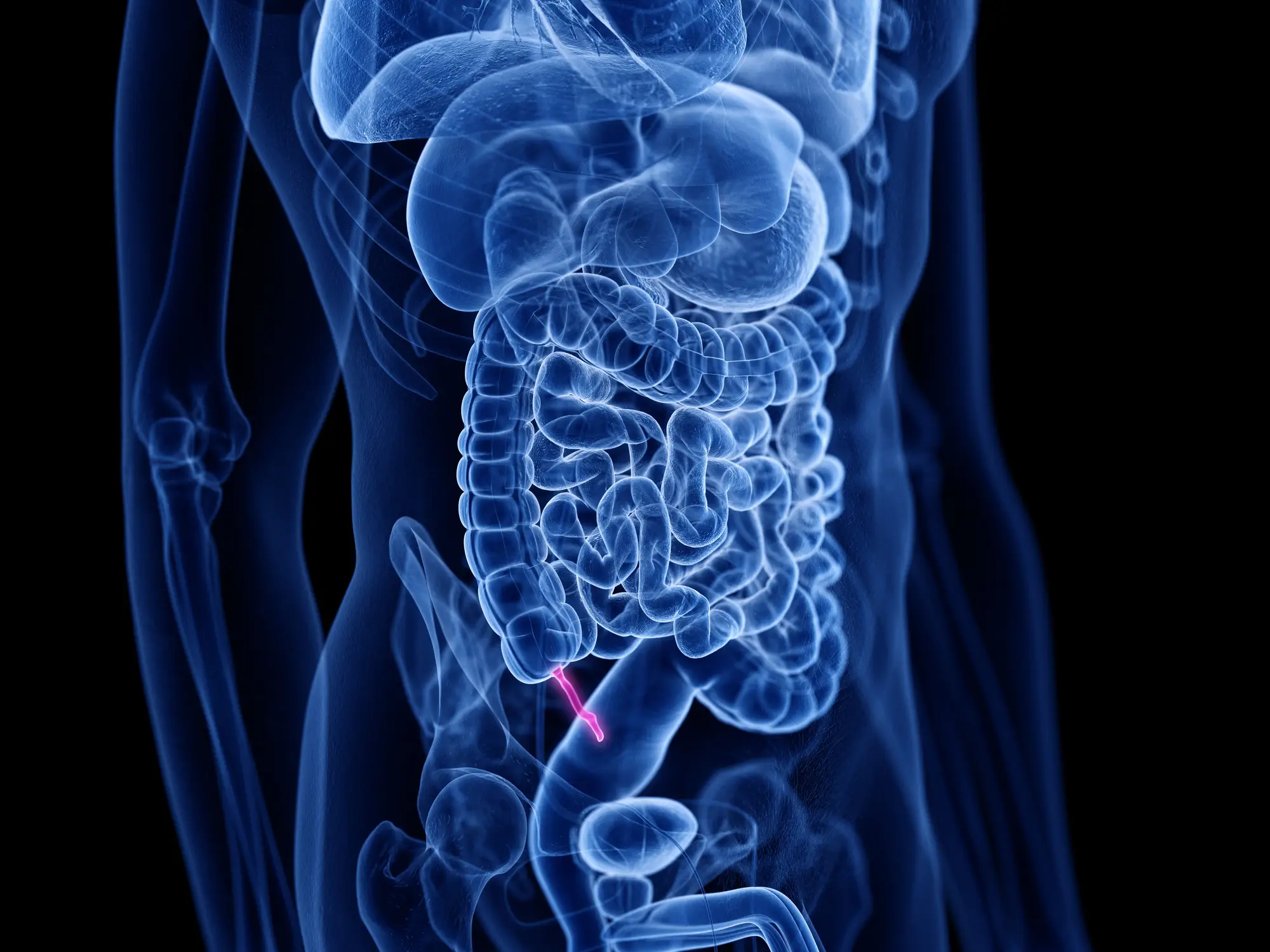
A woman who was diagnosed with stage four cancer has issued a warning over how 'rare' the condition actually is.
Lindsay Barad had not long completed her fourth marathon in December 2021 and was stunned to learn that the pelvic pain she’d been experiencing was actually down to cancer.
Her symptoms were initially dismissed by medics as heavy periods, but an ultrasound revealed a huge cyst which had been pressing on her bladder.
Surgery to remove the cyst uncovered a shock - Lindsay actually had stage 4 appendix cancer, which affects roughly one to two million Americans per million annually.
Advert
Although rates of the disease are rising among 36 to 49-year-olds in the US.
The disease often goes undetected until it’s advanced, because early symptoms - like bloating, abdominal discomfort, nausea and 'jelly belly' - mimic far more common gynaecological issues.

Diagnosed with low-grade appendiceal mucinous neoplasm (LAMN) that had ruptured and spread mucin throughout her abdomen, Lindsay underwent major, eight-hour surgery in March 2023.
The complicated operation remarkably preserved her uterus and avoided a stoma bag, although she had a long road to recovery, with the surgery inducing menopause.
But Lindsay is concerned over appendix cancer being labelled as 'rare,' as she told UNILAD: "People assume the odds are stacked in their favor, it’s something so unusual it’s unlikely to touch their lives. I believe some rare cancers, like appendix cancer, aren’t as rare as we think.
She added: "The problem is they’re often overlooked, misdiagnosed, or simply unfamiliar to many doctors and patients."
Even those who've had their appendix removed aren't safe from appendix cancer, either.

Another type of appendix cancer called adenocarcinoma can develop in the tiny, less than 5mm 'stump' left behind after an appendectomy, as one study highlights.
The disease can appear anywhere from five to 43 years after the original surgery and typically presents just like acute appendicitis, with right lower-quadrant pain.
Diagnosis is usually confirmed by CT imaging, and treatment involves surgically removing the diseased stump.
"It is a myth that if you had an appendectomy, you can’t get appendix cancer," Lindsay highlights.
"I’ve met patients who were diagnosed with appendix cancer years after their appendectomy. How is that possible? Because when their appendix was removed, no pathology was performed, meaning the tissue wasn’t examined for cancer.
"Over time, symptoms like 'jelly belly' emerged, and it turned out the disease had been quietly growing, undetected, for years."

Ultimately, Lindsay believes in advocating yourself and seeking a second opinion.
"My advice is simple: listen to your body and be your own advocate. If you think something is wrong, trust your instincts.
"If you aren’t getting answers, seek second, third, even fourth opinions."
She adds: "I no longer believe in what defines a rare cancer - in other words, I don’t think all rare cancers are actually 'rare'.
"I believe appendix cancer is far more common than we think. It’s often overlooked, misdiagnosed, or mistaken for other conditions, so the numbers are skewed."
If you’ve been affected by any of these issues and want to speak to someone in confidence, contact Macmillan’s Cancer Support Line on 0808 808 00 00, 8am–8pm seven days a week.